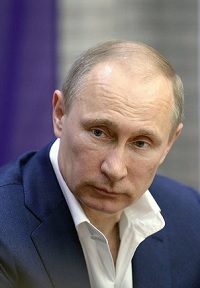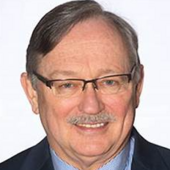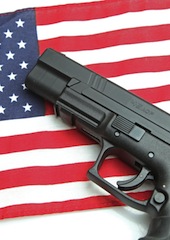Putin’s Russia Reset
What Putin learned from the 1989 German revolution — and how he misunderstood it
March 24, 2014

Russia’s President Vladimir Putin is a heavily traumatized man. Despite all the air of invincibility he is constantly trying to project to the world, the events in Ukraine ring home to him in a very personal manner.
In fact, Putin has seen this movie – a major ally falling, even though that country was decked out with leaders fully supportive of Russia’s cause – before.
What are the Maidan and the streets of Kiev now were the streets of East Germany back in 1989 – with one big difference: Putin himself was an operative in that battle against freedom.
Lt. Colonel Putin, who spent the 1980s as a KGB officer, had arrived as a near-omnipotent man in East Germany. His Angelikastrasse Villa in Dresden, Putin’s house as the local chief KGB resident, was located directly across the street from what was then the East German secret police, Stasi, headquarters in town.
From this perch, he witnessed a course of events in East Germany that he couldn’t stop from unfolding.
Before long, in August 1994, a once high and mighty Russia simply had to pick up and leave Germany, tail in hand. No doubt these events humbled and shamed him.
Decades later – on Tuesday, March 18, 2014 – and as if to gloss over all over that, Putin tried to be cute. In announcing the annexation of Crimea, he sought to equate it with German reunification and, given that context, asked the Germans to support it. They didn’t take the bait. Chancellor Merkel’s spokesman immediately rejected Putin’s proposition.
Putin thus tried to cast Crimea’s return into Russia’s web as a case akin to when the then-Soviet Union had supported German reunification in 1990.
The Sochi Games – to make shame undone
As part of the campaign for the shame he felt all along from the events of 1989/1990, which he has always perceived as the unnecessary self-diminution of Russia, Putin orchestrated the Sochi Olympic Games. His overarching goal was to celebrate the “new Russia” in the spring of 2014.
Alas, his costly “strategic” planning quickly came to naught. The Sochi Games now resemble an effort to put glossy red lipstick onto the face of the same old Soviet style of operations.
To Putin’s eternal chagrin, the “Ukrainian Street,” with its unbending demonstrations in Kiev, brought down the Russian-sponsored Communist government — and prompted Russia’s occupation of Crimea.
Doubly traumatized
That “his” Olympic Games were double-crossed by a chain of events that remarkably resembles the events Putin had witnessed in East Germany from his Dresden perch in the fall of 1989 was simply too much.
In September 1989, demonstrators in Putin’s Dresden neighborhood took to the streets and demanded freedom.
To add insult to injury, the East German demonstrators were encouraged by then-Soviet President Mikhail Gorbachev. To his eternal credit, he was pursuing new thinking in the Soviet Union to transform and revitalize the Soviet Union through economic restructuring (Perestroika) and openness (Glasnost).
Even though East Germany’s leader, Erich Honecker, rejected Gorbachev’s message, Gorbachev championed the new path and warned that those who came too late would be punished by history.
The East German Street in action
On Saturday, October 7, 1989, just over a month before the collapse of the Wall, East Germany celebrated its 40th anniversary with a massive torchlight parade down Berlin’s main boulevard Unter den Linden, followed by a gala dinner in the Palast der Republik with leaders from the Communist world. President Gorbachev returned to Moscow immediately following the dinner.
That night, as soon as the celebration had ended, the crackdown began. Demonstrators had gathered at the Gethsemane Church in Berlin to appeal for the release of political prisoners, freedom to travel and adherence to the Helsinki Final Act guaranteeing human rights.
Around 10 p.m., they were answered by hundreds of police swooping down the streets beating and arresting more than 1,000 demonstrators.
The next day, on Sunday, demonstrators in Leipzig prepared for the by then usual Monday demonstration. Honecker also prepared — to end the counter-revolution in the streets.
East German police were stationed in Leipzig, medical doctors’ leaves were suddenly cancelled and blood supplies ordered. The press was banned from the city and the stage was set for confrontation and bloodshed.
Gorbachev’s East German supporters, notably Hans Modrow, the last communist prime minister in East Germany, saw the dilemma. If the use of force crushed the demonstrators, it would also end Glasnost and Perestroika.
Ridding oneself of Russia
That Monday, October 9, a small group of Leipzig civic and communist leaders convened and agreed to avoid violence. The renowned Leipzig Gewandhaus Orchestra conductor Kurt Masur called for no violence (“Keine Gewalt”) from the demonstrators.
The Leipzig police chief issued the same order to the police.
Demonstrators met at the Nicholaikirche for Pastor Christian Fuehrer’s peace vigil — and that night, 70,000 took to the streets, marching the Leipzig ring road in protest against their Communist government. Violence was avoided.
Days later East German leader Erich Honecker was deposed and on November 9 the Berlin Wall fell. In a few months East Germany ceased to exist.
Undoubtedly traumatized by the events, Putin has had plenty of opportunity to think about the course of events at the time.
He has obviously drawn lessons from his own experience during these months of the democratic revolution in Germany. Putin recalled an incident during the 1989 revolution in Dresden when a mass demonstration aimed at the Stasi office across the street from his residence.
Putin threatened to shoot — in Germany
After the crowd ransacked the Stasi office and then prepared to storm Putin’s building, he called in the Soviet military for protection, told the crowd in fluent German that the property was Soviet territory, and threatened to shoot trespassers. The crowd dispersed.
Gorbachev may have intended to revitalize the Soviet Union, but he failed to use force when he had 380,000 soldiers in East Germany to maintain Soviet rule.
It was a terrible thing to witness for Vladimir Putin, the judo fighter, to see a repeat of this strife for freedom now unroll on the streets of Kiev under his rule.
Worse, Kiev is not Berlin or Leipzig. It is much closer to home. One may have been the “forward” buffer, but Ukraine is essential for Russia and its hyper-security mindedness.
No question on Putin’s mind whatsoever that these street protests are the greatest threat to the Russian Federation yet — and must be stopped. And so it was that democratic demonstrations in the streets of Leipzig and Berlin brought down governments.
Crimea as a consolation prize
Seizing Crimea, at most, is a consolation prize. For that reason, the world has to count on a stealthy, if not overt campaign to destabilize Ukraine further, to make sure it remains, in whatever form, in Russia’s orbit.
Why is this so essential? Because letting it happen yet again isn’t “just” about reliving the East German experience. Kiev’s real precursor is in the streets of Moscow, topped by the last great hurrah – the August Coup in 1991 against President Gorbachev.
Coup plotters and hardline Communist Party leaders opposed both Gorbachev’s new thinking as well as the “Union of Sovereign States Treaty” that Gorbachev sought to avoid the collapse of the Soviet Union.
Fear of another Yeltsin
However, after successfully seizing the government from Gorbachev, the coup plotters failed on the streets. Demonstrators demanded an end to the communist system. Led by Boris Yeltsin, the civil resistance in the streets forced an end to the coup.
The Soviet Union was dissolved in December 1991. Although the coup plotters were arrested, they were granted amnesty by the Russian parliament in 1994. In 2004, Putin awarded one of the coup plotters, former Soviet Defense Minister Dmitry Yazov, Russia’s Order of Merit medal for “high achievements in useful, societal activities,” ostensibly for trying to save the Soviet Union.
Putin’s effort to shape current history based on Gorbachev’s failure to prevent the collapse of the Soviet Union – in his mind, the “greatest geopolitical catastrophe of the 20th century” — may be completely misguided, but it is important to understand. After all, it is not just in his mind, but that of many Russians.
Editor’s note: J.D. Bindenagel was U.S. Minister, deputy chief of mission, at the U.S. Embassy to the German Democratic Republic, 1989-1990.
Takeaways
For Putin, the events in Kiev were traumatic, even in a very personal way.
Putin saw Russia’s power crumble under his own feet in Germany in 1989 when he was a KGB officer in Dresden.
The Maidan wasn’t just about reliving the East German experience. Kiev’s precursor is in the streets of Moscow.
Putin’s plan to re-glorify Russia via the 2014 Sochi Olympic Games unraveled on the streets of Kiev.

